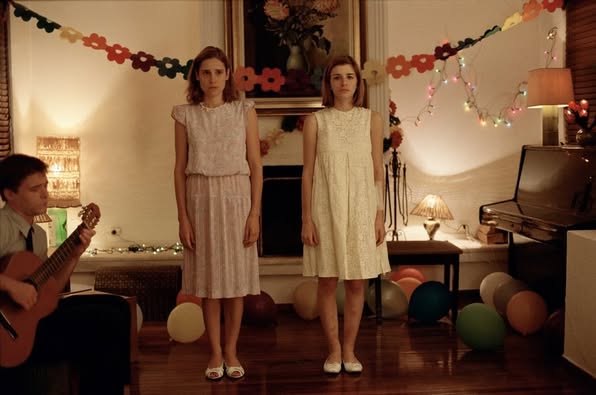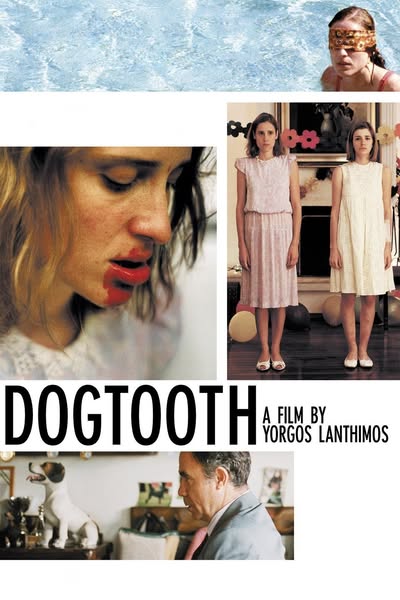Dogtooth (2009)

Dogtooth (2009), directed by Yorgos Lanthimos, is a provocative Greek psychological drama that delves into themes of control, isolation, and the construction of reality. The film tells the unsettling story of a family living in seclusion, where the parents impose strict rules and manipulate their children’s perceptions of the world outside their fenced property.
The narrative follows a father (Christos Stergioglou) who keeps his three children—two daughters and a son—confined within their home, believing that they must reach adulthood without any external influences. He creates a distorted reality for them, teaching them a fabricated vocabulary and lying about the outside world to maintain control. For example, the children believe that they will be ready to leave the house when they reach the arbitrary age of “dogtooth,” a term invented by their father.

The film explores the psychological effects of such extreme isolation. The children, portrayed by Angeliki Papoulia, Mary Tsoni, and Christos Stergioglou, exhibit a mix of innocence and disturbing behavior as they navigate their bizarre upbringing. Their interactions are marked by a combination of naïveté and unsettling violence, reflecting the twisted environment in which they have been raised.
Lanthimos’s direction is both stark and surreal, employing a cold, detached style that amplifies the film’s unsettling themes. The cinematography features symmetrical compositions and a muted color palette, enhancing the sense of isolation and control. The deliberate pacing allows viewers to absorb the absurdity of the family’s situation while creating an atmosphere of tension and discomfort.

Dogtooth is known for its dark humor and absurdist elements, often blending comedy with moments of horror. The film challenges societal norms and raises questions about the nature of freedom, knowledge, and the power dynamics within families. It invites viewers to reflect on the implications of absolute authority and the ways in which language and perception shape reality.
The film received critical acclaim, winning the Un Certain Regard prize at the Cannes Film Festival and earning an Academy Award nomination for Best Foreign Language Film. Its unconventional narrative and bold themes have made it a significant work in contemporary cinema, often sparking discussions about its content and meaning.

In summary, Dogtooth is a daring and thought-provoking film that explores the complexities of control, isolation, and the construction of reality within a family unit. With its unique storytelling, striking visuals, and unsettling performances, it challenges audiences to confront uncomfortable truths about autonomy, knowledge, and the human condition. The film’s impact lingers long after the credits roll, solidifying its place as a landmark in avant-garde cinema.











